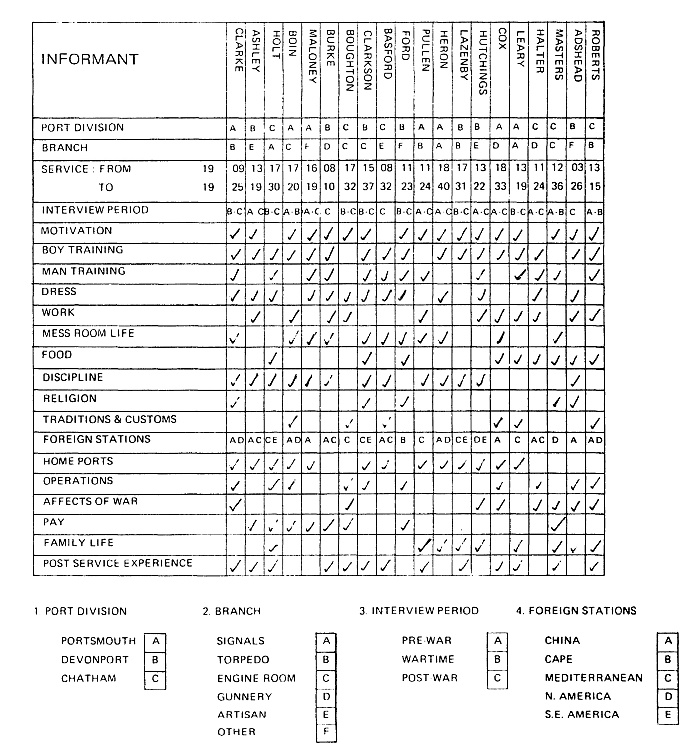Documentation
For the proper assessment and use of oral evidence, the collecting centre should systematically record the project methodology. Without this background information the scholar may not be able to use appropriately the information which has been recorded. What were the aims of the project organiser? By what means were informants selected for interview? What was their individual background? How were the interviews conducted? How was the work as a whole controlled? The more information there is available to answer such questions as these, the more valuable oral history materials will be to the researcher and the more securely he can make use of them in his work.

A formal paper, of the kind recommended earlier, can tell the user a great deal about how the project was structured. A working file will be even more useful, if it reveals the way in which the work evolved (recording what changes were introduced at what stage in the development of the project). Such files should be maintained and regarded as an integral part of the research materials which may be needed by historians.
Individual informant files should also be accessible for research. They should contain biographical details of the informant and also be organised in such a way that the user can correlate tapes or transcripts with places and dates which are covered by the interview. In this respect, interviewers are in a uniquely valuable position to secure a documentary basis of the information they record. Often the informant's memory, photographic and documentary materials in his possession, reference sources and the interviewer's own subject expertise, can be combined to formulate quite a detailed chronology. This will support and give background to the recorded interview.
Similarly, the interview itself should be used as a means of establishing the kind of background information that will give additional significance to the information the informant provides. Thus, in addition to the specific project information the interviewer is seeking, he can with advantage also record details of the informant's place of birth and upbringing, his family background, economic circumstances, educational attainments, occupational experiences and so on.
Much that an informant says during the course of an interview he may wish to correct, amend or amplify subsequently. No documentation system would be complete without providing him with the means so to do. The opportunity to listen to or read the completed interview often provides the informant with a considerable stimulus to add to the information which has already been recorded. Once committed to an oral history interview, most informants feel the need for historical exactitude. Collecting centres can maintain their transcripts in pristine condition, whilst also giving informants full opportunity to supplement with written notes the information they have already given, and filing such notes along with the final tapes and transcript.


